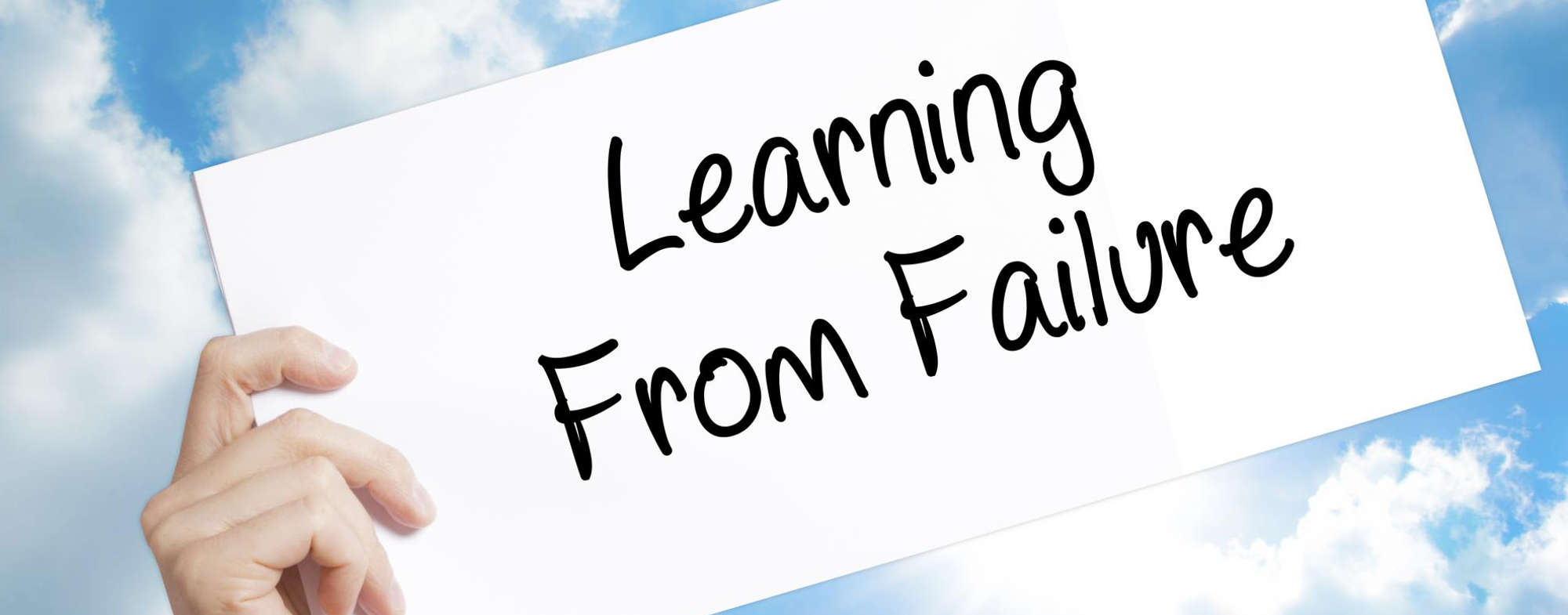Failing Forward, And Other Positive Consequences Of Not Quite Winning
“There are two kinds of Marines in Recon,” a friend said, “Swim Team members and Barfighters. You my friend, are a Barfighter.” I looked back quizzically. He continued.
“Swim Team guys are tan, they’ve got cool tattoos, they’re in awesome shape, and they blow through hard training without sweating. They look like recruiting posters and they’re all about the badges and medals.”
“And Bar Fighters?” I asked, bemused.
“Bar Fighters maybe don’t look the best with their shirts off. They may not out run or out swim anyone. But you know in a bar fight you don’t have to look behind you to see if he’s backing you up. You know when a guy is about to break a chair over your head, a Bar Fighter will take that guy down.”
That was a somewhat back handed compliment (especially the no-shirt thing given the ongoing insurgency by my waistline), but it obviously meant something to me as I’m recounting it ten years later. Of course, the Swim Team/Bar Fighter distinction ignores a third type, the true elites who are naturally capable enough to be the best Swim Team members but still train like Bar Fighters. But the mass of people who aspire to overcome challenges fit in one of the two categories. As a Bar Fighter, I’m not naturally talented at many things (including bar fighting) and the things I am good at are not in particularly high demand. Subsequently, my options are binary; work hard and have a chance at success, or coast and definitely fail. I know this to be true yet I still tell myself the occasional lie about my natural ability, my level of focused effort, or my mental preparedness for an event. I’ve consequently had the opportunity to learn the value of failure.
As a young man, I genuinely feared failure. I spent more time prevaricating on the potential effect of failing (or avoiding opportunities to publicly fail) than I did in creating the conditions for success (i.e. planning, training, and working). I eventually had failure thrust upon me. It was a gift.
When I was nineteen, a friend and I got in a street brawl with approximately 954 guys. It did not go well for the home team. At one point I found myself sitting on the sidewalk hitting four guys on their feet with my face (I swear I would have had them if the cops hadn’t shown up). 48 hours later I was sitting on a mentor’s couch telling the story and looking for sympathy. Instead I got, “Good! Now you know you can take a punch (or a succession of them) and get back on your feet!”
It still took me a few years, and some more opportunities to fail, to fully appreciate the value of that beat down. That lesson paid dividends in combat, in higher education, in athletic pursuits, and in my career. When failure suddenly is no longer just an option, but rather a reality, how do you respond? Do you recover, re-evaluate, re-train, and re-attack or do you fold like a wet newspaper?

Failure can teach us who we are and illuminate who we want to be. Think about a failure you’ve had. Now, take an honest look at yourself, in that moment and now. Were you prepared for what you undertook? Did you have the capabilities required for the task you set upon? Did you truly want to do what you attempted or did you merely want to tell people you were attempting it? Have you since accomplished that objective? If not, could you do it now? I spent two years involved in assessment, selection and initial training of Marine Corps special operations and special operations support personnel. I believe a chief distinction between successful and unsuccessful candidates and students was not “how badly they wanted it” but rather “how badly they wanted to do the things required for success”.
Failure is rarely as bad in reality as it is in our imagination. Failing to attempt things that challenge or intimidate us is true failure. As a young Lieutenant, I worried greatly about what people (who had not actually themselves tried) would say if I failed to pass the Marine Corps Force Reconnaissance Indoctrination (or “Indoc”), required to join one of the Corps’ toughest units. I worried about what truth about myself would be revealed if I failed to meet the standard. I ultimately decided regret was worse than failure, attempted the Indoc, and passed. It wasn’t easy. Even though I worked hard to meet the aquatic standards, I was a weak swimmer and I still relied on the notion that the cadre would revive me if I drowned (failed) but there was no coming back if I quit.
Later, an Indoc cadre member said to me, “I figured if you were willing to die to be here, you’re trainable.” Assume though, I had not passed. I would have been embarrassed and the last twenty years would certainly have been very different but I would have tried again or gone on to other things. But had I not tried, I would be far more embarrassed now by the moral failure to attempt something I really wanted to accomplish (and that was within my capabilities).
Failure, or the threat of it, pushes us to greater heights, both in training and performance. I run (sort of) ultra-marathons of up to one-hundred miles. The most common question I get about it is “why?” (that and, “Why are you still shaped like the Chapter President for Dad Bod Anonymous?”). The answer is simple; because every time I step to the starting line, I don’t know that I won’t fail. I’ve come to appreciate that uncertainty.
In 2016, I volunteered at a 100-mile race. I decided to get some miles of my own during a lull in the volunteer action. It was late in the race, so I took off from the finish line and ran in reverse so I could encourage runners as they were nearing the end. The elite runners had finished as much as ten hours before. The folks that were still on the course had been moving for more than twenty-eight hours at that point, some with several more hours to go. Temperatures during the first twenty mile lap had been in the low teens and the entire course had been a sheet of ice, courtesy of six hours of freezing rain that fell immediately before the previous day’s 6 AM start. I started meeting runners on the trail. They were mud spattered, most were limping, but all of them had the air of someone who has put forth as much effort as they have to offer and know it’s going to pay off. No one finishes an ultra-marathon without training and even then, if you run enough of them, you will fail. Therein lies the value: taking the risk of failure and consequently expanding your comfort zone.

Failure forces us to confront our own weakness. I graduated from Law School in 2006. All Summer, I treated studying for the state bar examination like it was my job and I crushed it. Six months later, I took another state’s bar exam. My preparation was questionable at best and I got crushed. That sucked. I had a host of excuses; I was renovating two houses, commuting two hours each way to work, I was helping establish the then-brand new Marine Special Operations Command. Ultimately, I didn’t prioritize correctly and the result was predictable. I was embarrassed, personally and professionally. I wasted money and time my wife and I didn’t have to waste. I had to again confront the fact that I’m not someone who can easily rely on native ability. In short, I grew up a little more.
The ultimate value, to me, in dealing with failure is the opportunity to develop endurance by pushing through adversity. Avoiding opportunities to fail is avoiding opportunities to grow. If you never tear at your mental and physical tissues you never build them back stronger. So think harder and then put your ideas out for public comment. Run with faster people. Lift with stronger people. Take some professional risks. And when you inevitably fail at one of them, say thanks, identify the flaw in your preparation, and step up again.
Russell Worth Parker is a retired Marine Corps Special Operations Officer. He likes barely making the cut-offs in ultra-marathon events, sport eating, and complaining about losing the genetic lottery.





